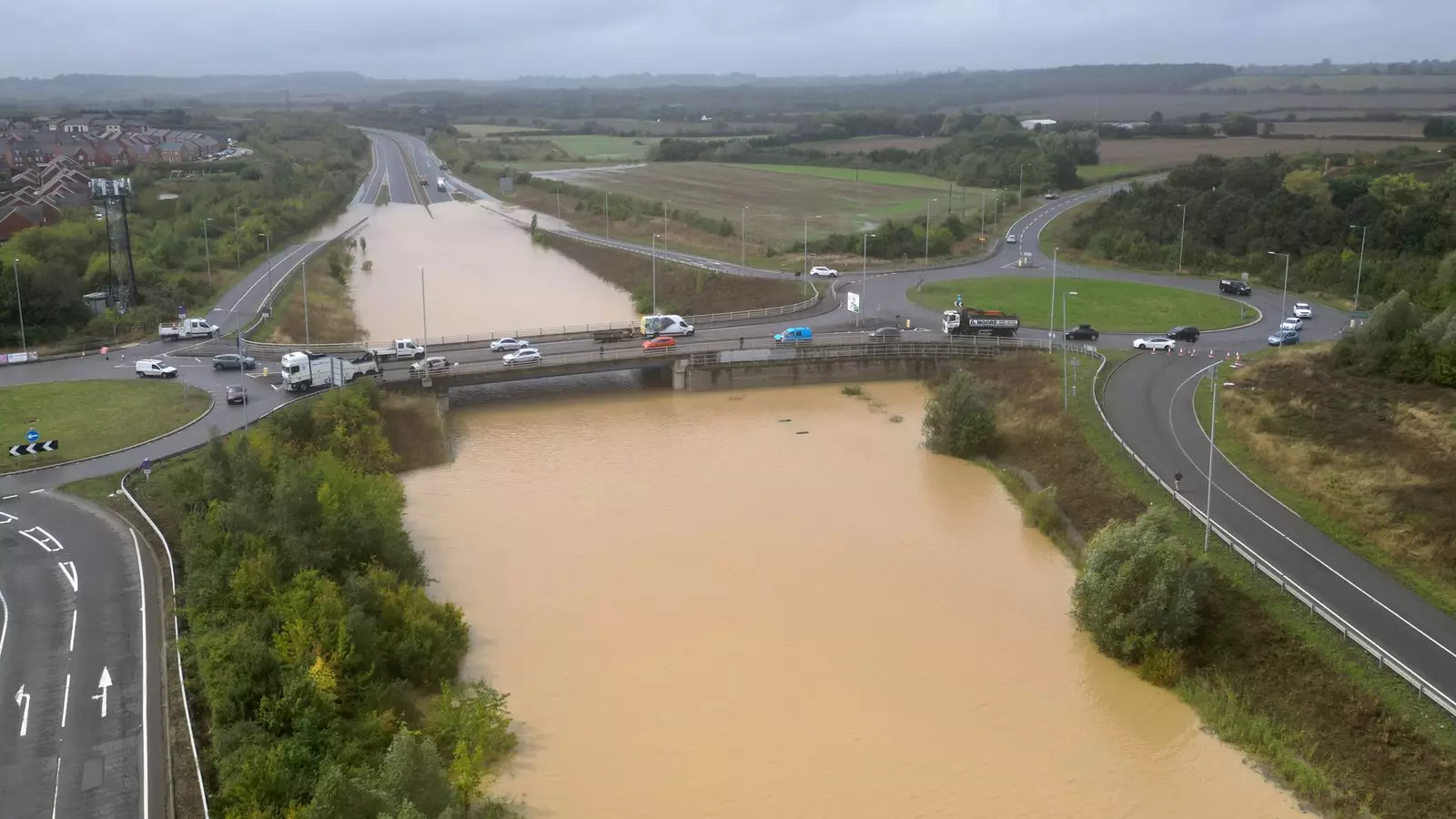As severe weather ravages parts of the UK, commuters are grappling with significant transport disruptions due to road closures and disrupted rail services. Continuous rainfall has not only caused chaos on the roads but has also heightened concerns over flooding, leading to a series of flood warnings across numerous regions. As weather forecasts indicate the likelihood of further rain, the implications for residents and commuters alike are dire.
The Met Office has issued various weather warnings for the upcoming days, highlighting the risks of heavy rainfall and strong winds. A yellow weather alert encompassing the area from Nottinghamshire to Northumberland suggests that commuters should be prepared for considerable disturbances. The forecast is particularly grim for northern England and the north Midlands, where areas like the Pennines and North York Moors could see up to 100 mm of rain. This amount is alarming, especially given the recent deluge that has already inundated many communities, underscoring the vulnerability of the region to such environmental challenges.
The consequences of the unrelenting rain are evident in the disruption of travel routes. Various roads have been rendered impassable due to rising water levels, forcing commuters to seek alternative routes or abandon travel altogether. Key closures include significant arteries like the A421 northbound and the A5, impacting not just individuals but also businesses that rely on logistics and transport. The National Highways agency has reported these closures, indicating a broader impact that could ripple through the economy and daily life.
In addition to road disruptions, rail services are equally affected. Flooding has interrupted key railway routes, particularly between Rugby and Milton Keynes, causing delays and cancellations on services operated by Avanti West Coast and London Northwestern Railway. The chronic instability in rail transport is a source of frustration for commuters who depend on these services for their daily journeys. This disruption is compounded by reported issues on Chiltern Railways, which has linked Birmingham to London, further straining the transport framework. As reliance on public transportation increases, so too does the need for reliable services.
The financial and emotional toll of urban flooding cannot be understated. Regions already battered by extreme weather are now facing the aftermath: damaged homes, lost possessions, and a lifestyle put on hold. Areas like Bedfordshire and Oxfordshire have seen record rainfall, with Woburn recording an astonishing 142.8mm in just 48 hours—more than double the usual amount for September. Such conditions not only threaten property but also put a strain on emergency services and local communities already stretched thin.
Despite the rain temporarily tapering off in some areas, the Environment Agency warns that the situation remains precarious as more light rain is expected. Communities must remain vigilant and prepare for the possibility of further flooding. This recent bout of severe weather serves as a stark reminder of the importance of disaster preparedness, urban planning resilience, and responsive infrastructure. Policymakers must devote attention and resources to enhancing flood defenses and improving drainage systems to mitigate the impact of future weather events effectively.
As the UK faces ongoing challenges from severe weather, it is clear that systemic change is necessary. The perilous state of transport services, coupled with the reality of urban flooding, demands a coordinated response from local and national authorities. It is time to re-evaluate how infrastructure is built and maintained to withstand the increasing unpredictability of climate change. For commuters, residents, and businesses alike, ensuring safety and accessibility should be paramount as we navigate the increasing threat of extreme weather in the future.

Leave a Reply